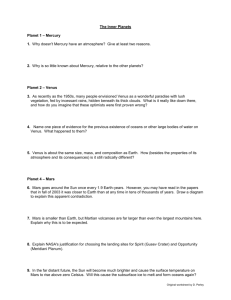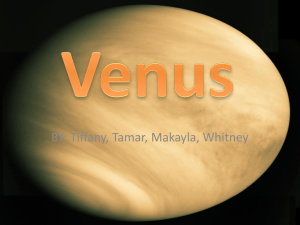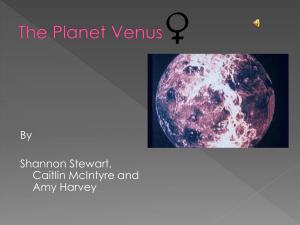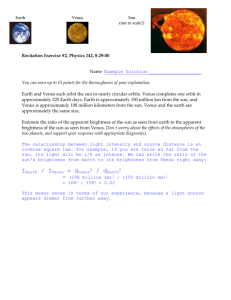Venus
advertisement
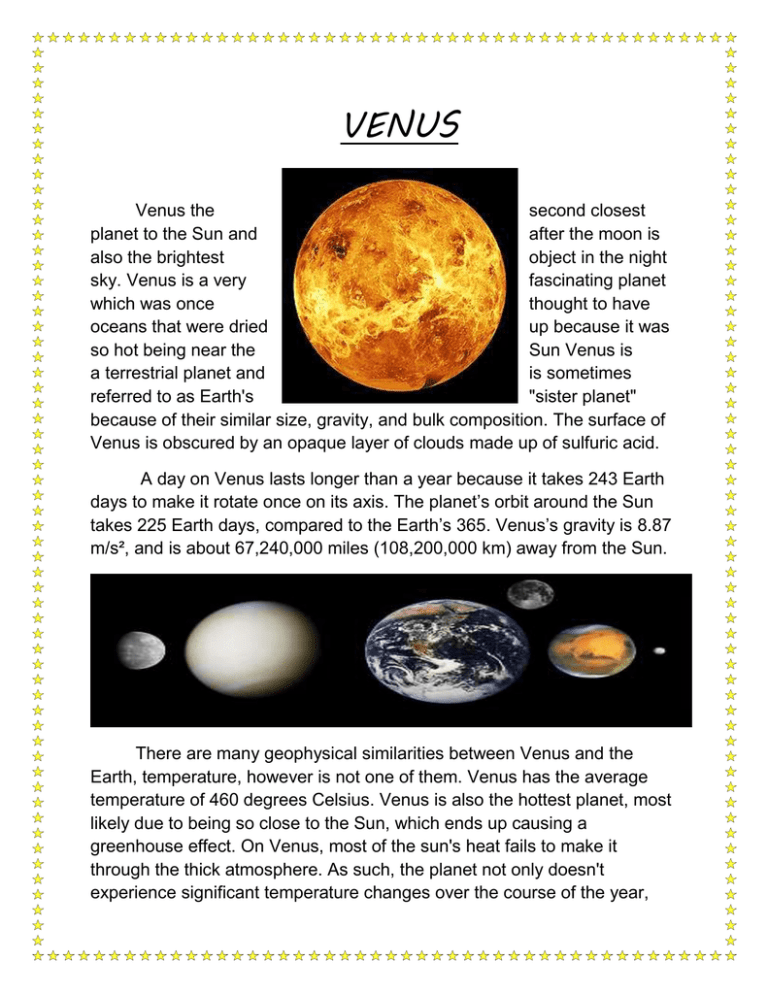
VENUS Venus the second closest planet to the Sun and after the moon is also the brightest object in the night sky. Venus is a very fascinating planet which was once thought to have oceans that were dried up because it was so hot being near the Sun Venus is a terrestrial planet and is sometimes referred to as Earth's "sister planet" because of their similar size, gravity, and bulk composition. The surface of Venus is obscured by an opaque layer of clouds made up of sulfuric acid. A day on Venus lasts longer than a year because it takes 243 Earth days to make it rotate once on its axis. The planet’s orbit around the Sun takes 225 Earth days, compared to the Earth’s 365. Venus’s gravity is 8.87 m/s², and is about 67,240,000 miles (108,200,000 km) away from the Sun. There are many geophysical similarities between Venus and the Earth, temperature, however is not one of them. Venus has the average temperature of 460 degrees Celsius. Venus is also the hottest planet, most likely due to being so close to the Sun, which ends up causing a greenhouse effect. On Venus, most of the sun's heat fails to make it through the thick atmosphere. As such, the planet not only doesn't experience significant temperature changes over the course of the year, but it also keeps things constant from night to day. Speaking of Night and Day, Venus reaches its maximum brightness shortly before sunrise or shortly after sunset, for which reason it has been referred to by ancient cultures as the Morning Star or Evening Star There are no known satellites of Venus. Between the 1670s and the 1770s, there were several observations of what appeared to be a satellite approximately 1/4 the size of Venus. Many theories exist to explain these sightings as well as one in 1892 by E. E. Barnard, including optical illusions, stars, and even a tenth planet, but recent observations have not revealed any satellite. However Venus has been visited by several other spacecraft. Past probes to visit Venus included Mariner 2, Pioneer Venus Orbiter & Pioneer Venus Multiprobe (Pioneer 12 & 13), and Magellan while another mission, called Venus Express, and is in the works by the European Space Agency.


